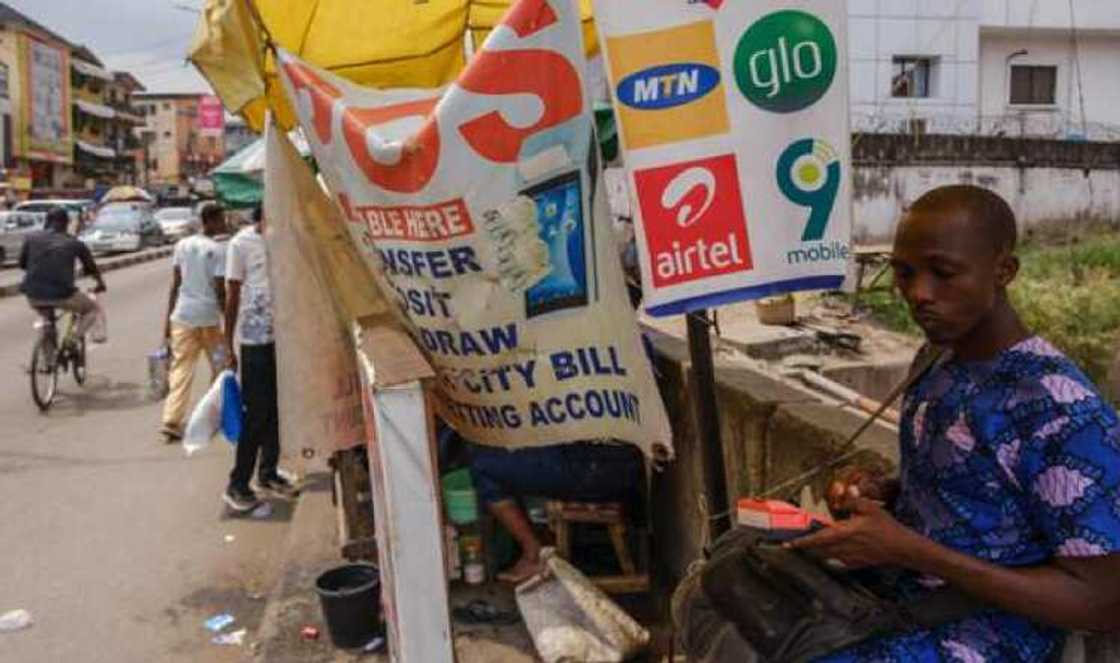PoS Operators Barred from Implementing Price Hike, Face Potential Sanctions
- PoS operators have been prohibited from implementing their planned price increases on their range of transactions
- The FCCPC has stepped in to protect consumers against exploitation by PoS operators
- The commission has clearly stated that price fixing is totally not allowed as it disrupts the market
Nigeria's Federal Competition and Consumer Protection Commission (FCCPC) has banned Point of Sale (PoS) operators from implementing the newly declared hike in charges for PoS transactions.
The declaration follows the recent action by the Association of Mobile Money and Bank Agents in Nigeria (AMMBAN) on behalf of specific PoS operators in establishing standardised prices for various transaction services.
Consequently, the Central Bank of Nigeria (CBN) announced its intention to intervene in addressing the concerns surrounding the new charges implemented by PoS agents in Nigeria.

Source: Facebook
In a statement published on its website and signed by its chief executive officer, Babatunde Irukera, the FCCPC clarified that the Federal Competition and Consumer Protection Act (FCCPA) does not permit any trade association to set prices in a manner that can disrupt the market.
PAY ATTENTION: Follow us on Instagram - get the most important news directly in your favourite app!
The commission cautioned the Association of Mobile Money and Bank Agents in Nigeria (AMMBAN) against implementing the proposed pricing, emphasising that any such action would result in penalties stipulated by the FCCPA.
FCCPC disallows PoS operators price fixing
While acknowledging that the FCCPC Act (2018) recognises a certain level of self-regulation within professions or trades, the FCCPC emphasised that this recognition comes with significant limitations.
Specifically, the Act extensively restricts collaboration, particularly in coordinating the provision and pricing of services.
It stated:
The FCCPA expressly prohibits any price-fixing or agreement among undertakings (whether bilaterally or multilaterally) or by undertakings acting in consensus on the platform, or under the aegis of an association to fix prices, coordinate supply or any other commercially sensitive factors that can limit or substantially prevent competition; or otherwise distort the market.
It added that setting prices disrupts the market, hinders innovation and efficiency, and ultimately fails to benefit consumers or other businesses, except those involved in illicit collaborations or activities.
FCCPC to sanction erring PoS operators
The FCCPC warned that the FCCPA imposes severe penalties on cartels or any form of coordinated or collusive behaviour among competitors, including actions taken at the association level.
It stated that the commission is dedicated to enforcing the law to the fullest extent possible whenever substantial evidence indicates that a business is involved, either directly or indirectly, in such prohibited conduct or agreements.
It added:
To the extent that any combination of undertakings, including AMMBAN indeed, met, agreed or decided to impose uniform or coordinated fees/tariffs for services, this announcement should serve to ensure such undertakings cease and desist from that arrangement or similar discussions/conduct.
The commission further said it had commenced an investigation into the matter and appealed to consumers to share valuable and reliable information to aid the investigation and enforcement process.

Read also
Proof of ownership certificate: Nigerians knock FG over N1,000 annual charge for all vehicles
Nigerians had come to loggerheads with PoS operators over exorbitant commission charges on cash withdrawals and transfers at the height of the naira scarcity.
To combat unauthorised practices, the CBN had to unveil a set of guidelines, an emergency helpline, and an email contact for citizens to report any instances of PoS operators engaging in the sale, issuance, or charging of rates exceeding the approved limits.
CBN releases guidelines for PoS operations
In earlier news, Legit.ng reported that the Central Bank of Nigeria (CBN) issued a regulatory framework for agent banking operations to address and mitigate risks within the financial sector.
The guidelines were introduced through a circular titled "Exposure Draft of the Regulatory Framework for Agent Banking in Nigeria," signed by Musa I. Jimoh, the director of the Payments System Management Department.
Within the 31-page document, Section 8.3 of the framework specifically outlines the activities that agents are prohibited from engaging in.
Source: Legit.ng




